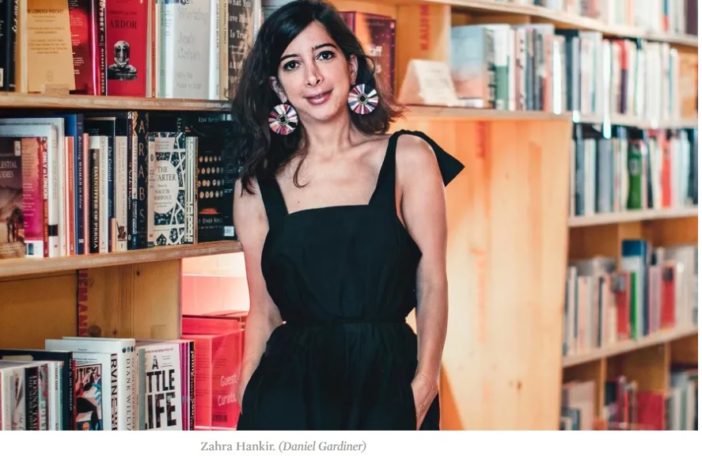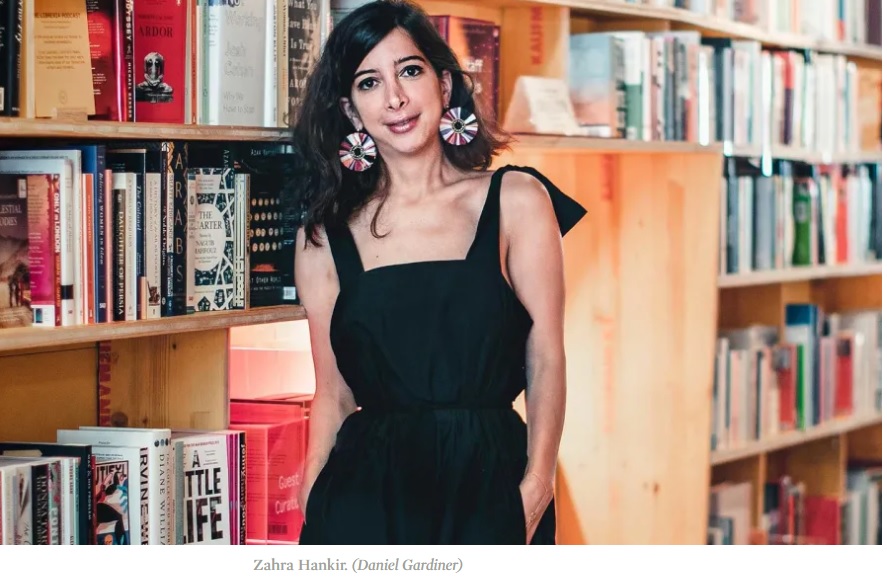The Nation
By Sarah Aziza
Zahra Hankir’s anthology Our Women on the Ground elevates vital but often overlooked voices from Morocco to Gaza to Yemen.
The [Arab woman reporter] is twice burdened…. in her homeland, she is among some of the most mistreated women in the world when it comes to her basic rights…and she is among some of the most repressed reporters in the world,” writes Zahra Hankir in the introduction to Our Women on the Ground: Essays by Arab Women Reporting From the Arab World, a collection of 19 articles published in August. The anthology, which ranges from Morocco to Gaza to Yemen, and covers a nearly two-decade span of political and social history, was Hankir’s attempt to elevate the voices of the sahafiyat (Arabic for “women journalists”), whom she sees as vital, but often overlooked, members of the region’s political and media landscapes.
Even before she began the work of compiling the book, Hankir knew she had set herself a near-impossible task. Aiming to appeal to both specialists and general audiences alike, the book’s premise would rely on several imperfect frameworks. The “Arab world,” strictly speaking, does not exist, while any attempt to represent “Arab women”—a population of roughly 200 million—would necessarily fall short. Journalism in the region, too, is difficult to characterize, with the “Middle East” as a whole consistently ranked as one of the most difficult, and dangerous, places to report.
Even so, Hankir, an Arab woman and working journalist herself, felt compelled to try. Throughout the process, she navigated the minefield of colonialist tropes and reductive stereotypes that frequently characterize mainstream coverage of the region, such as the view of the Middle East as a place of interminable conflict, or the Arab woman as perpetually oppressed.
She also made the tough choice of limiting herself to contributions by women who identify as “Arab”—thus excluding many sizable minorities, such as Kurds, Berbers, or Armenians. She signals this choice clearly on the first page of her introduction, citing the story of a young Kurdish Syrian woman, and adding, “While this book centers on women of Arab ancestry…we by no means aim to present the twenty-two countries that comprise the Arab world as monolithic.”
‘ON HER SHOULDERS’ HONORS THE COURAGE AND TENACITY OF NOBEL PEACE PRIZE WINNER NADIA MURAD
Sarah Aziza
I spoke to Zahra Hankir in mid-August, as she ended a whirlwind two-week tour of the United States with the book. As two female journalists of Arab descent, we had much to discuss, and our conversation ranged widely. This discussion, edited lightly for clarity and length, is presented below.
Sarah Aziza: Could you describe a bit about the origins of this project? In your introduction, you mention you’d started collecting the work of female Arab reporters in a private Google Doc, but was there a certain event, or writer, or piece of journalism that prompted you to begin turning that collection into a book?
Zahra Hankir: Growing up in a Lebanese family living in the UK, news was a permanent fixture in our home. Journalists were heroes to my parents, as they relied on them to keep them informed about what was going on during the war back home, especially when they were unable to communicate with family in South Lebanon. As a professional, as you mentioned, I always sought out female, Arab journalists to read and follow, but I was also always hungry to see more. In some ways you could say the project was a little selfish—I set out to create the book I wanted to read.
At the same time, as an Arab woman reporter myself, I was dealing in my own way with many of the issues presented in this book. I was also once passed over for a job covering the region which I believed I was quite qualified for, only to see it given to a Western male journalist who didn’t speak Arabic and who hadn’t ever written about or lived in the Middle East himself. That particular experience really made me think about diversity in the newsroom—who gets to tell our stories, and who gets to edit them?
This book was partly an exercise in reclaiming the narrative by local voices and specifically women, who have an intricate knowledge of the region, can access closed-off spaces others cannot, and who frankly are sometimes relied upon by Western journalists, particularly as fixers, without getting the attention they deserve.
SA: I can relate to that experience—it seems publications often defer to “their guy” even when there are plenty of people closer to the stories who could report more deeply, or with greater nuance.
ZH: Exactly. It’s a narrative that’s been dominated by the West and Western correspondents for decades. That’s not to say foreign correspondents don’t do great work, of course. And there have been improvements as many mainstream outlets are employing more and more Arabs. I want to emphasize that this project was rooted in my eagerness to expand the narrative and prop up local voices, rather than to critique other ones.








